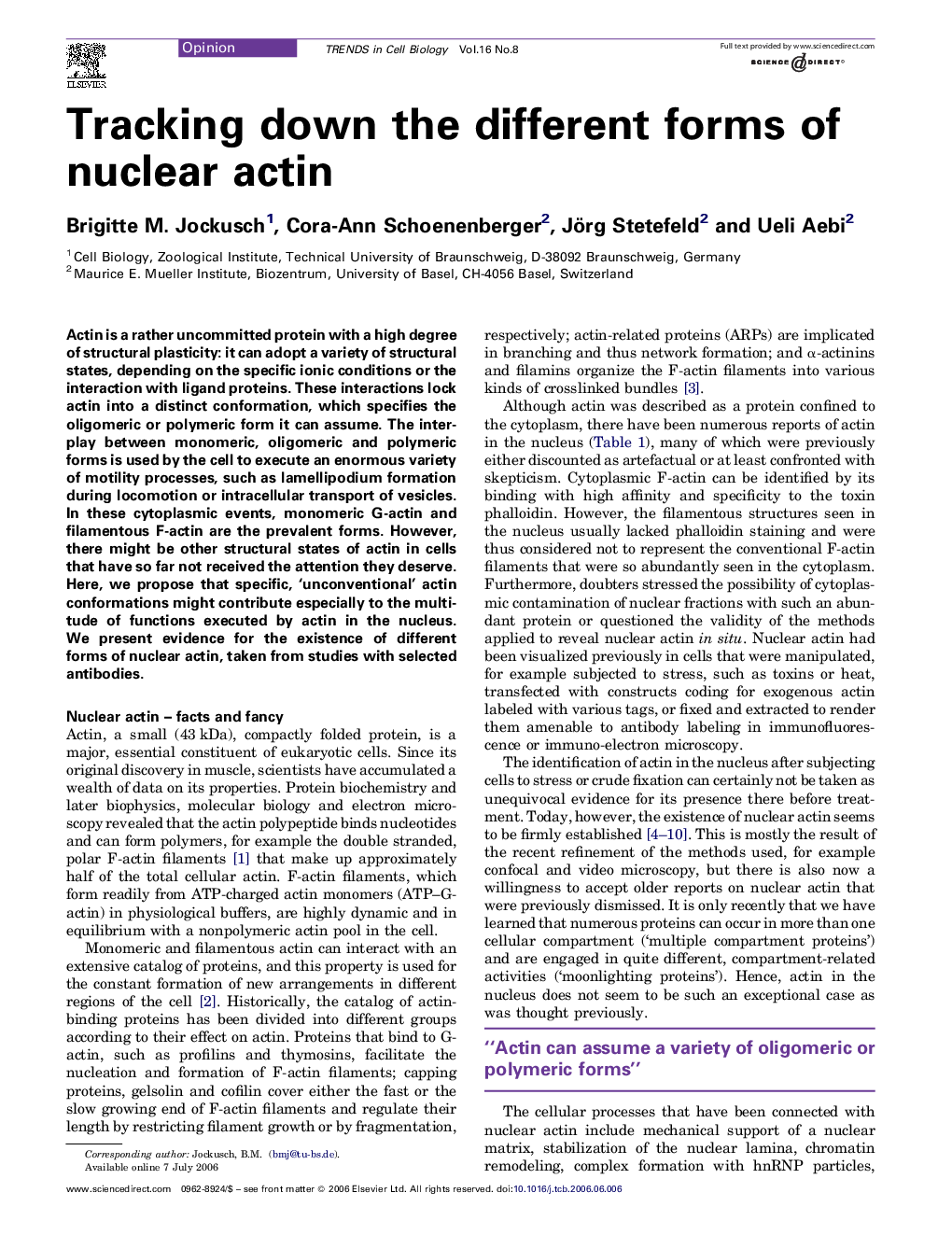| Article ID | Journal | Published Year | Pages | File Type |
|---|---|---|---|---|
| 2205348 | Trends in Cell Biology | 2006 | 6 Pages |
Actin is a rather uncommitted protein with a high degree of structural plasticity: it can adopt a variety of structural states, depending on the specific ionic conditions or the interaction with ligand proteins. These interactions lock actin into a distinct conformation, which specifies the oligomeric or polymeric form it can assume. The interplay between monomeric, oligomeric and polymeric forms is used by the cell to execute an enormous variety of motility processes, such as lamellipodium formation during locomotion or intracellular transport of vesicles. In these cytoplasmic events, monomeric G-actin and filamentous F-actin are the prevalent forms. However, there might be other structural states of actin in cells that have so far not received the attention they deserve. Here, we propose that specific, ‘unconventional’ actin conformations might contribute especially to the multitude of functions executed by actin in the nucleus. We present evidence for the existence of different forms of nuclear actin, taken from studies with selected antibodies.
